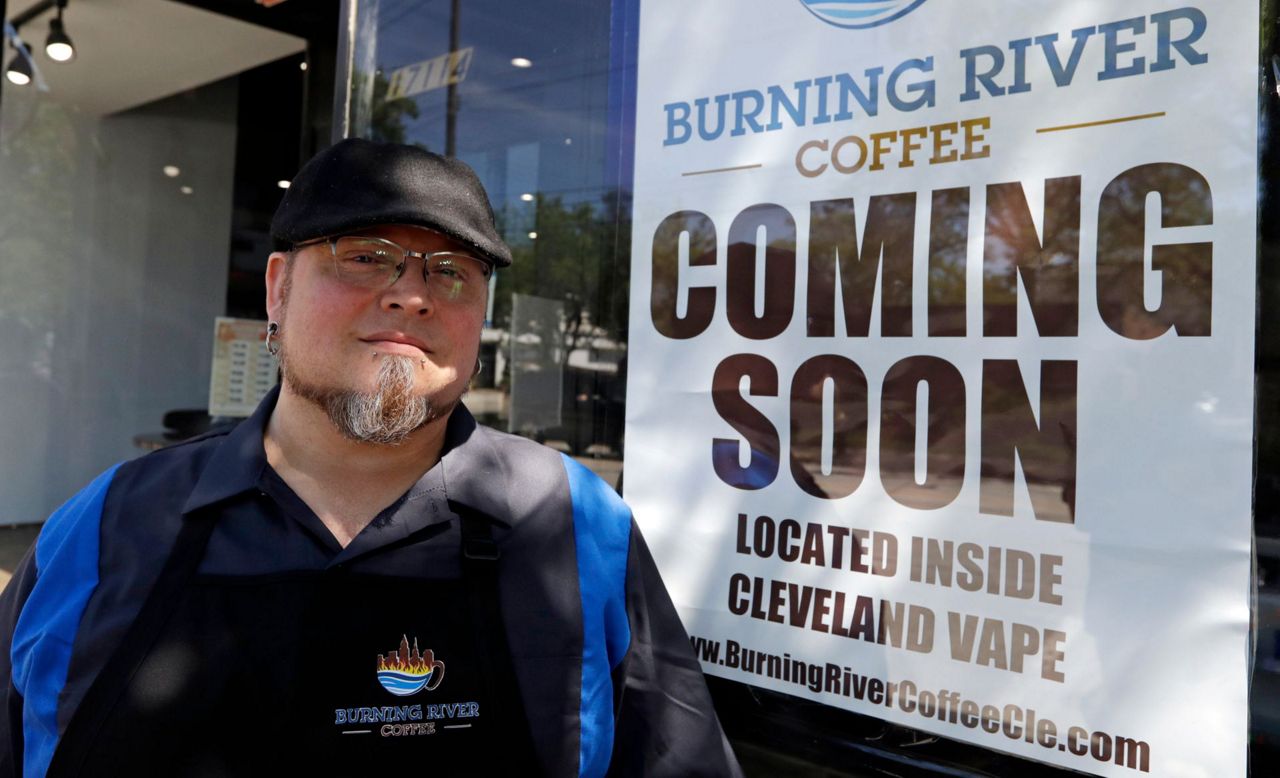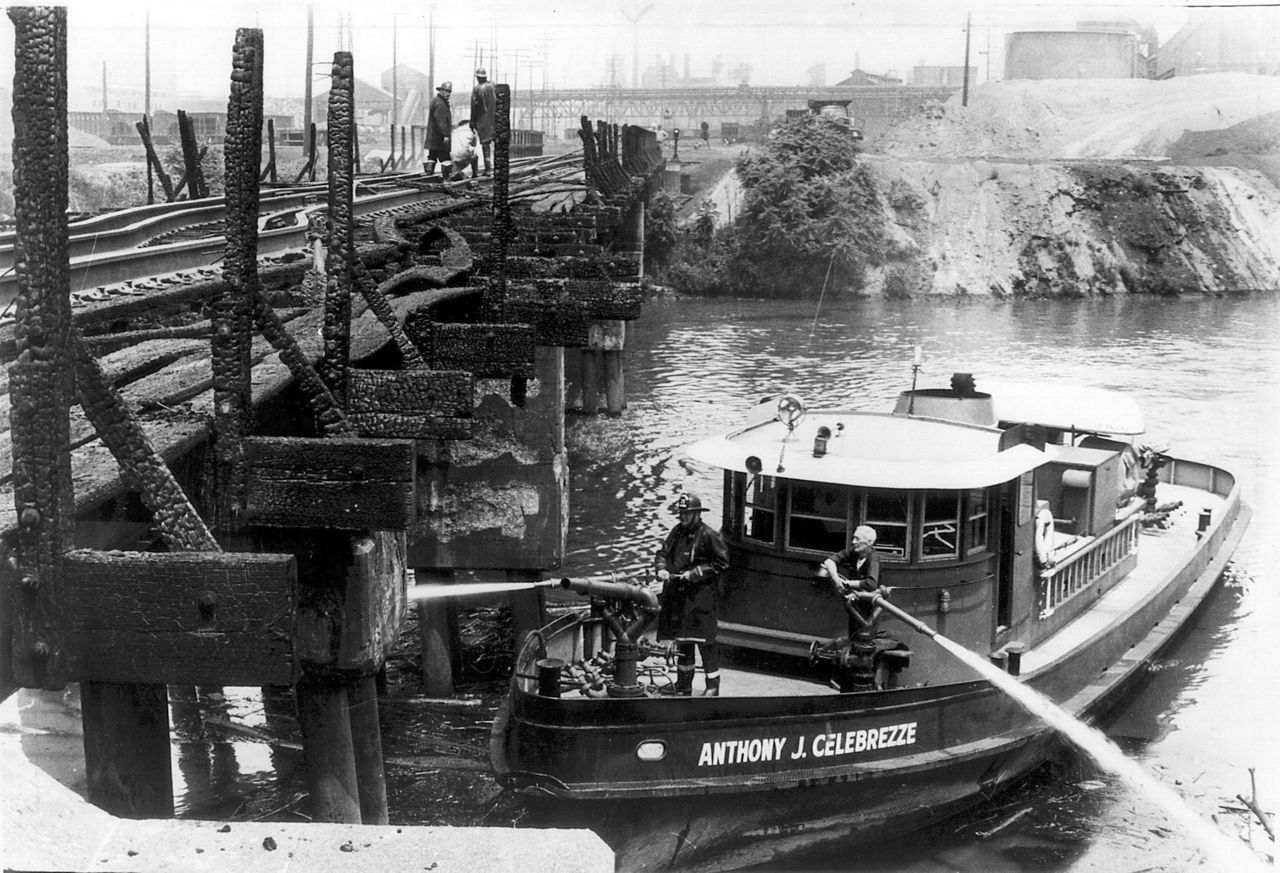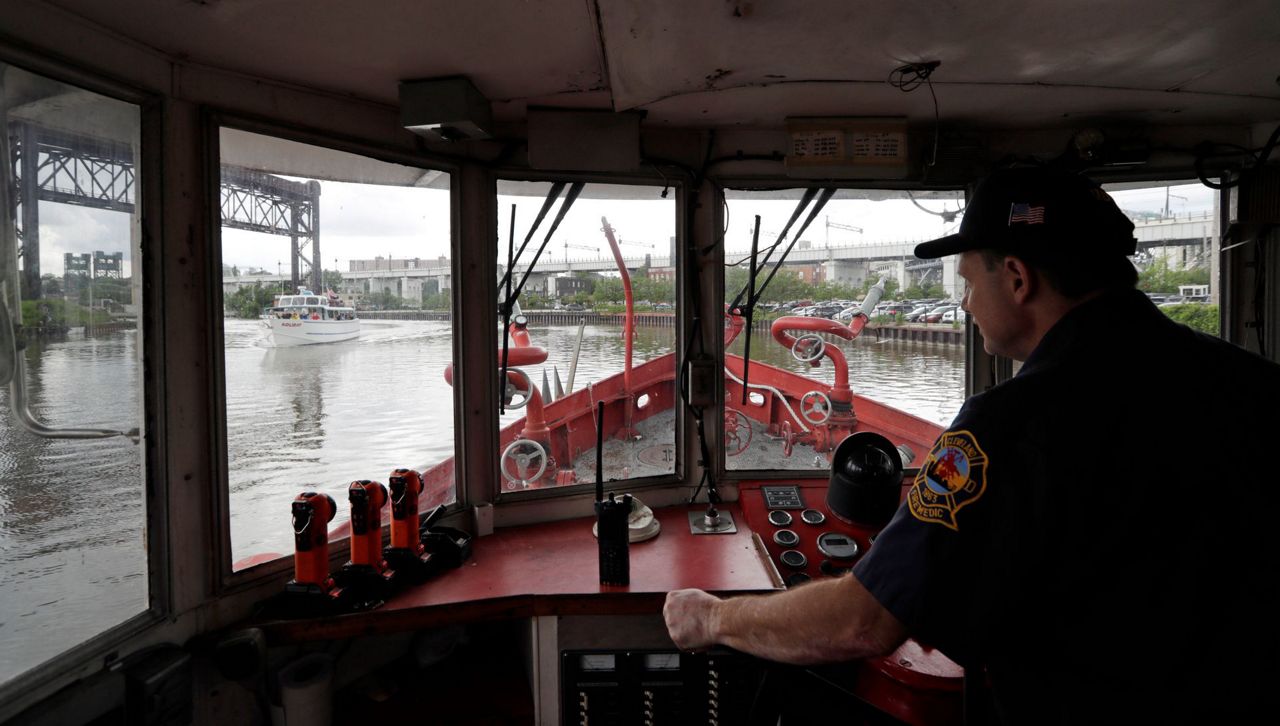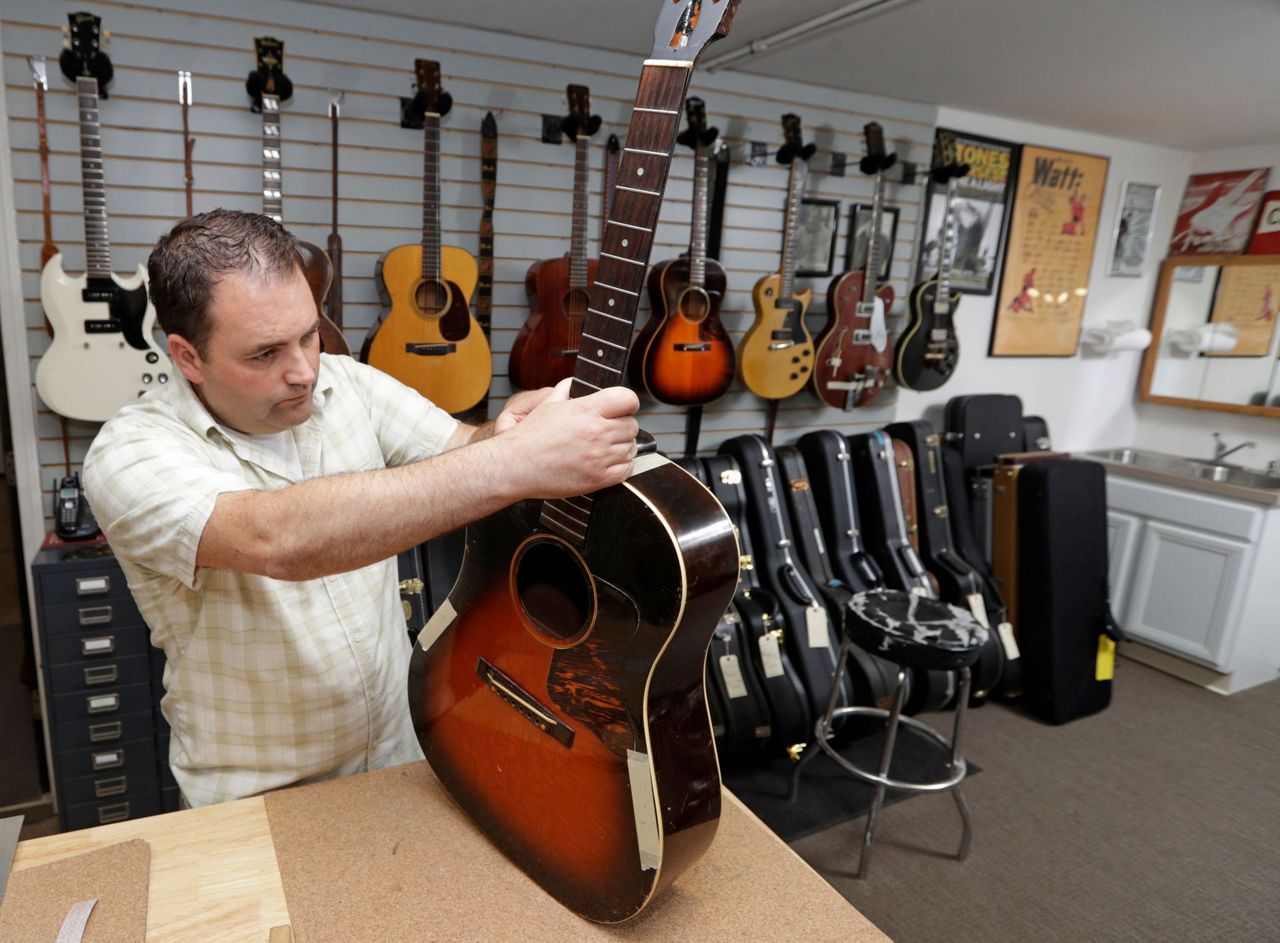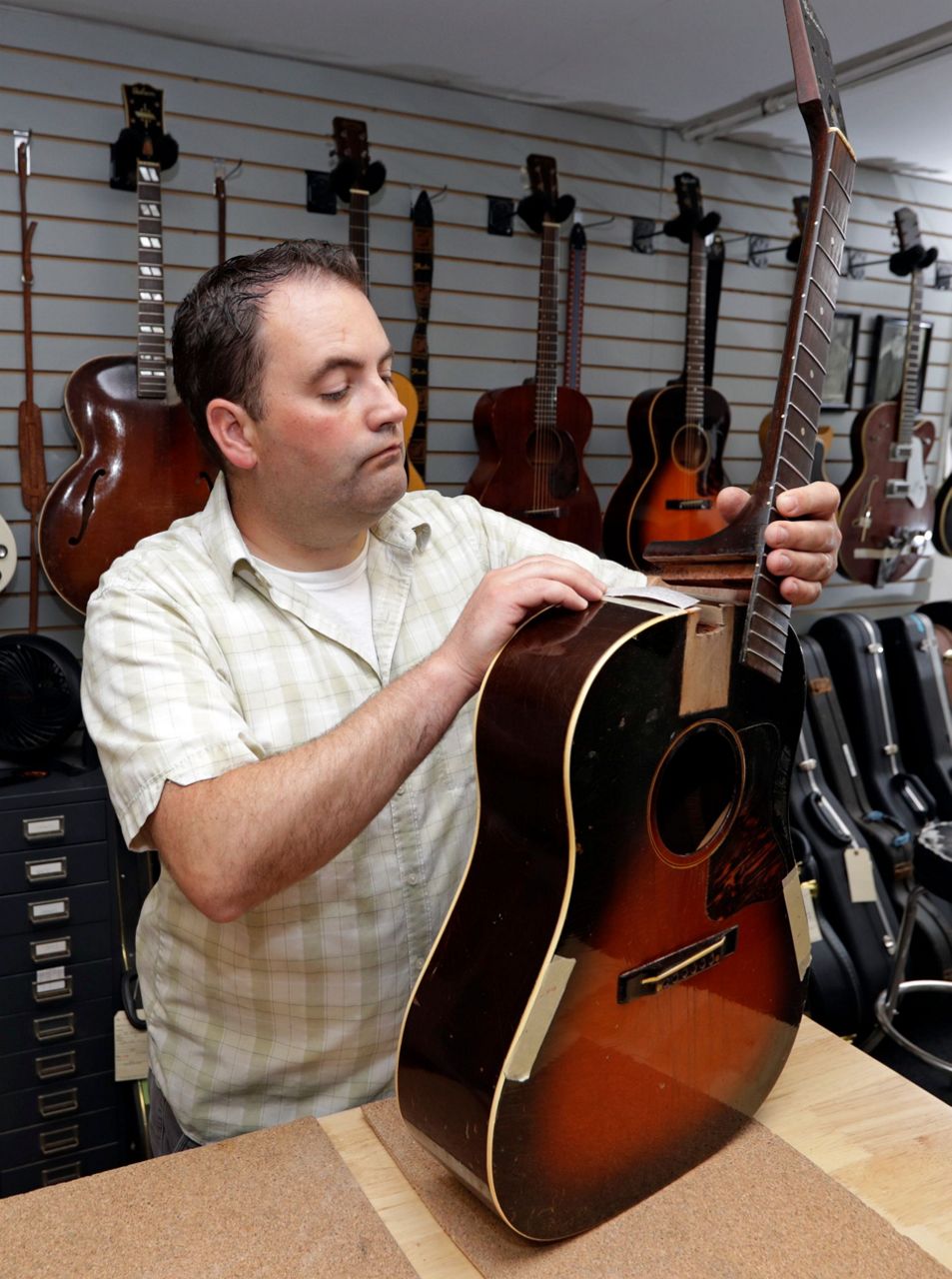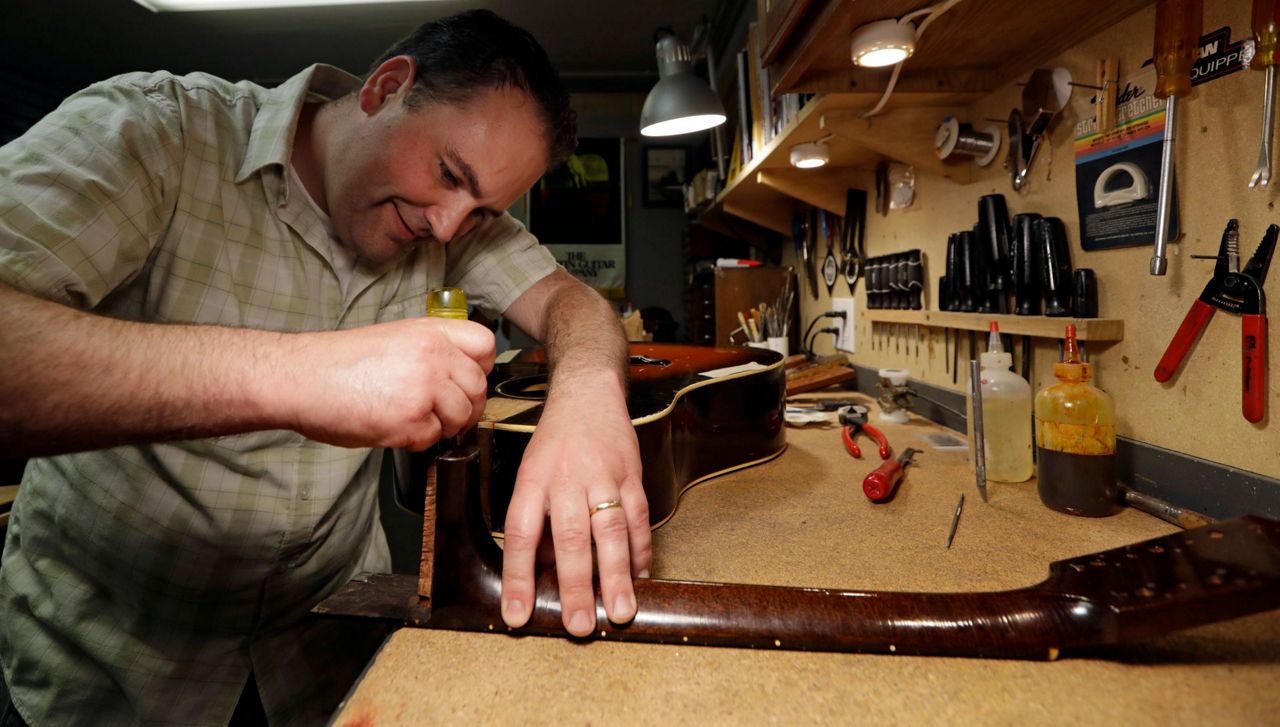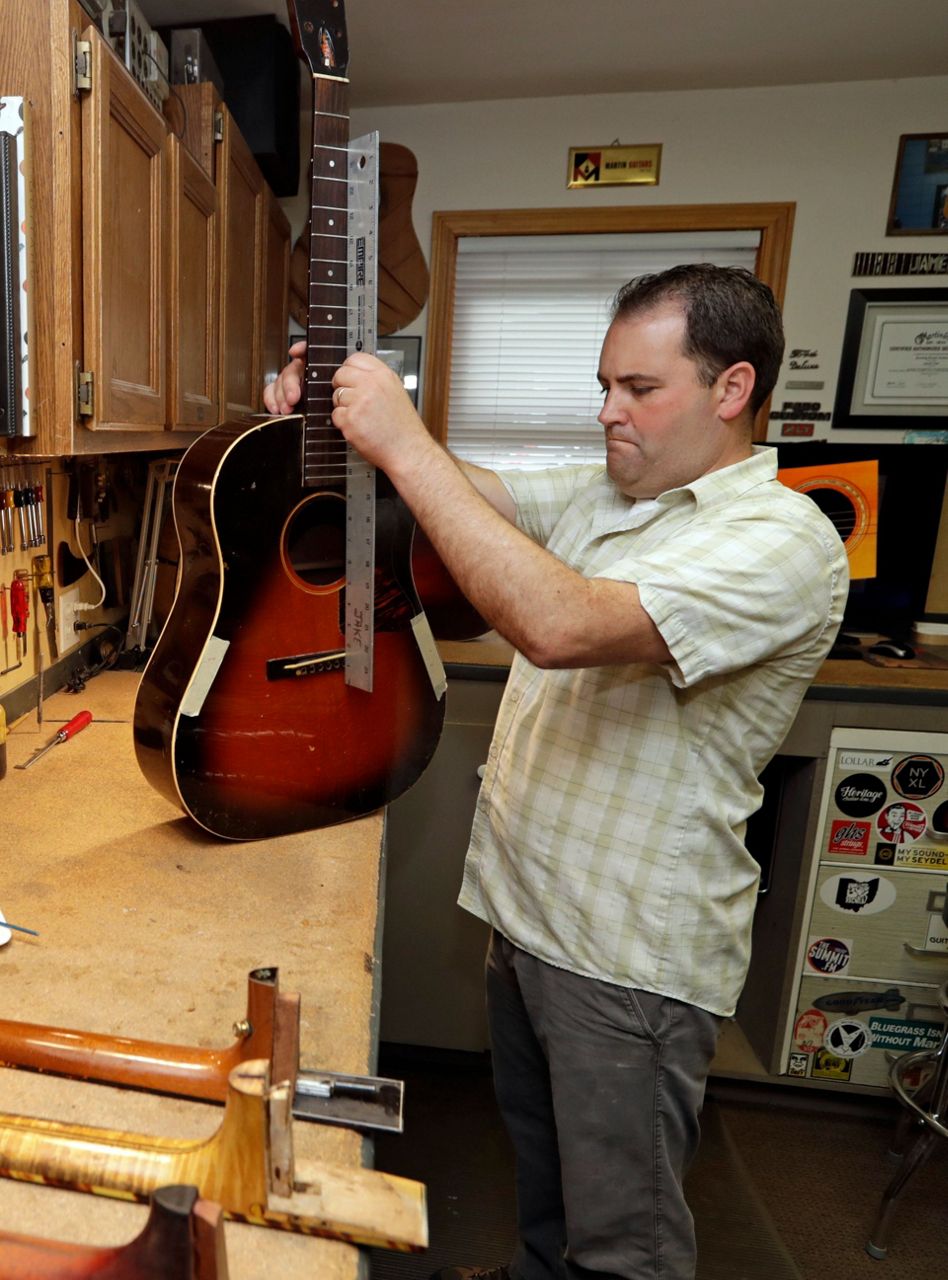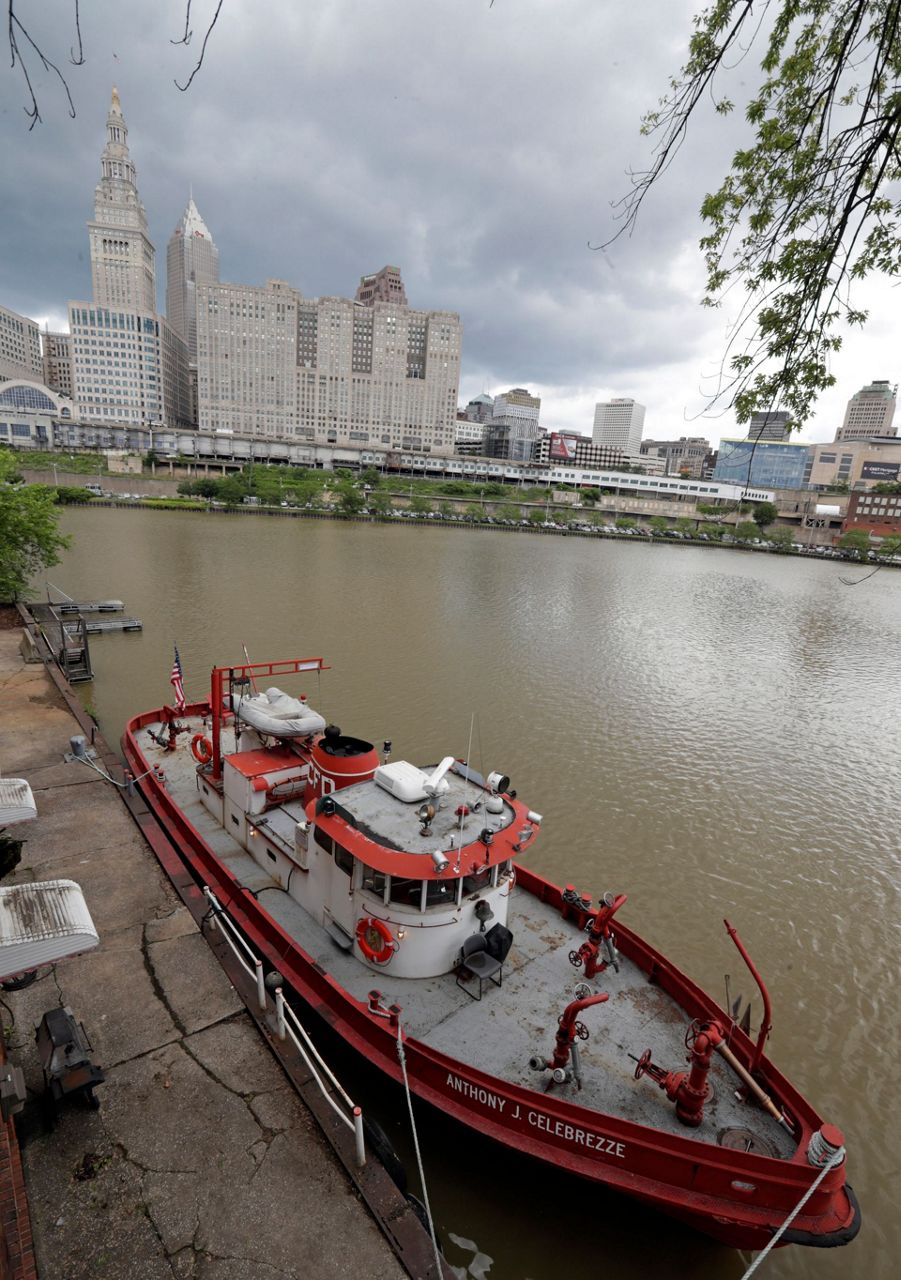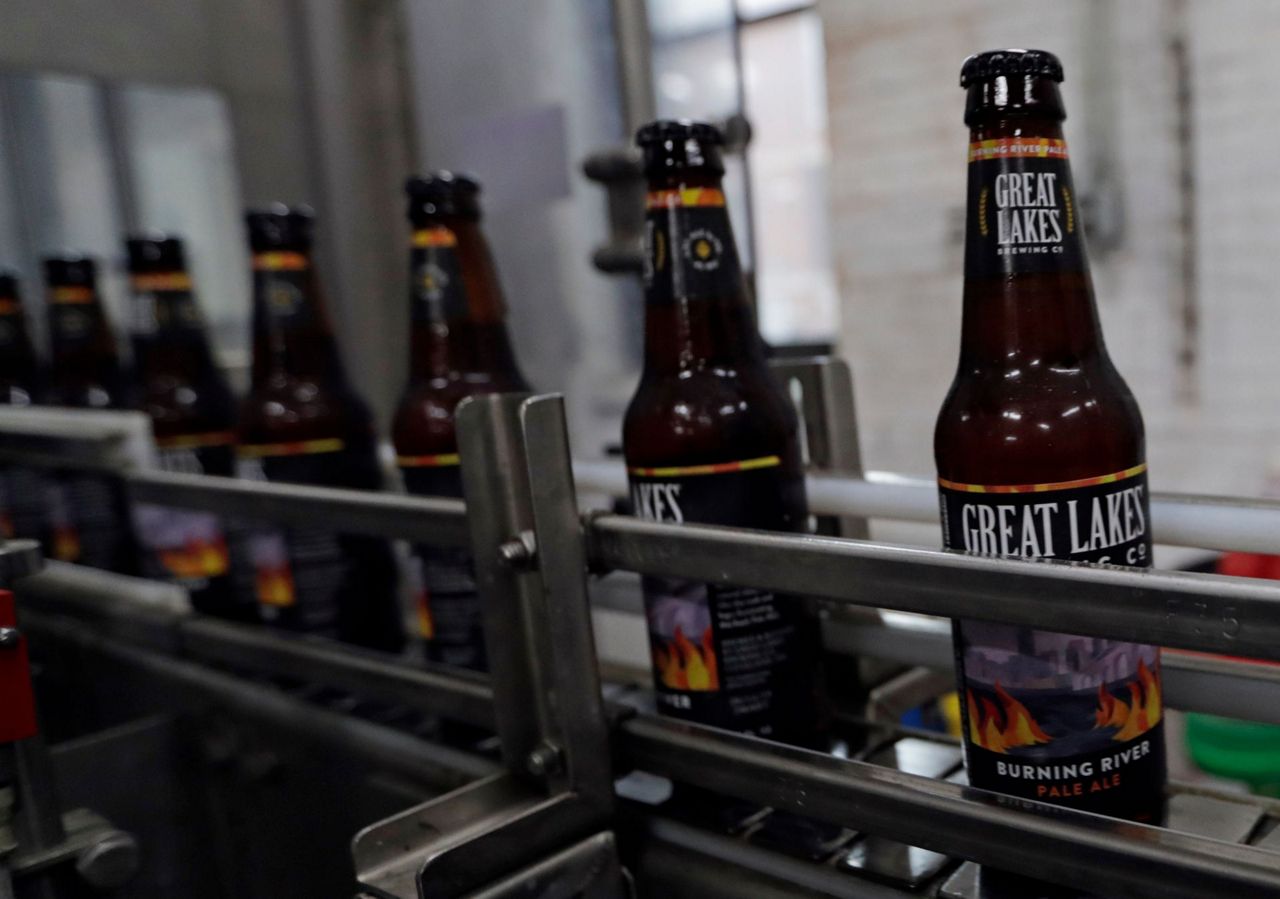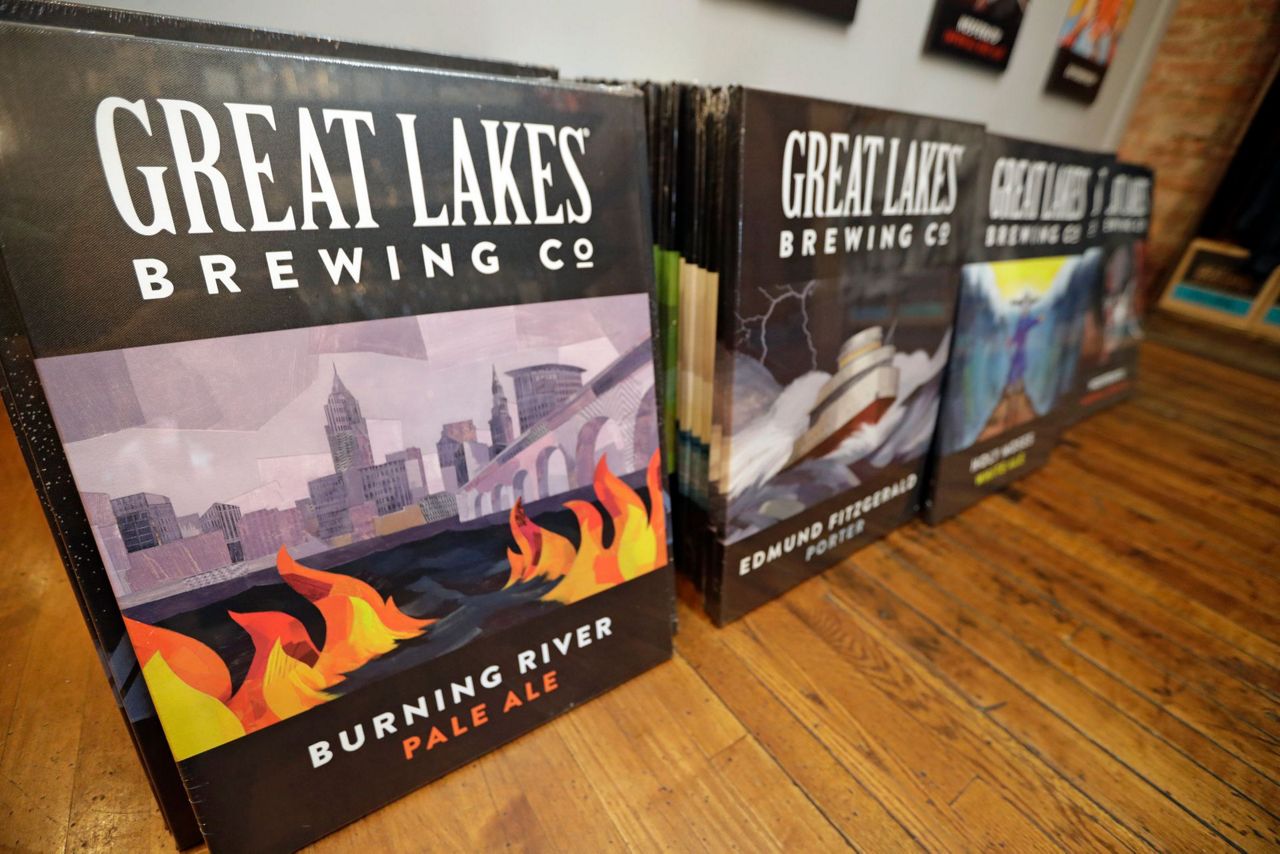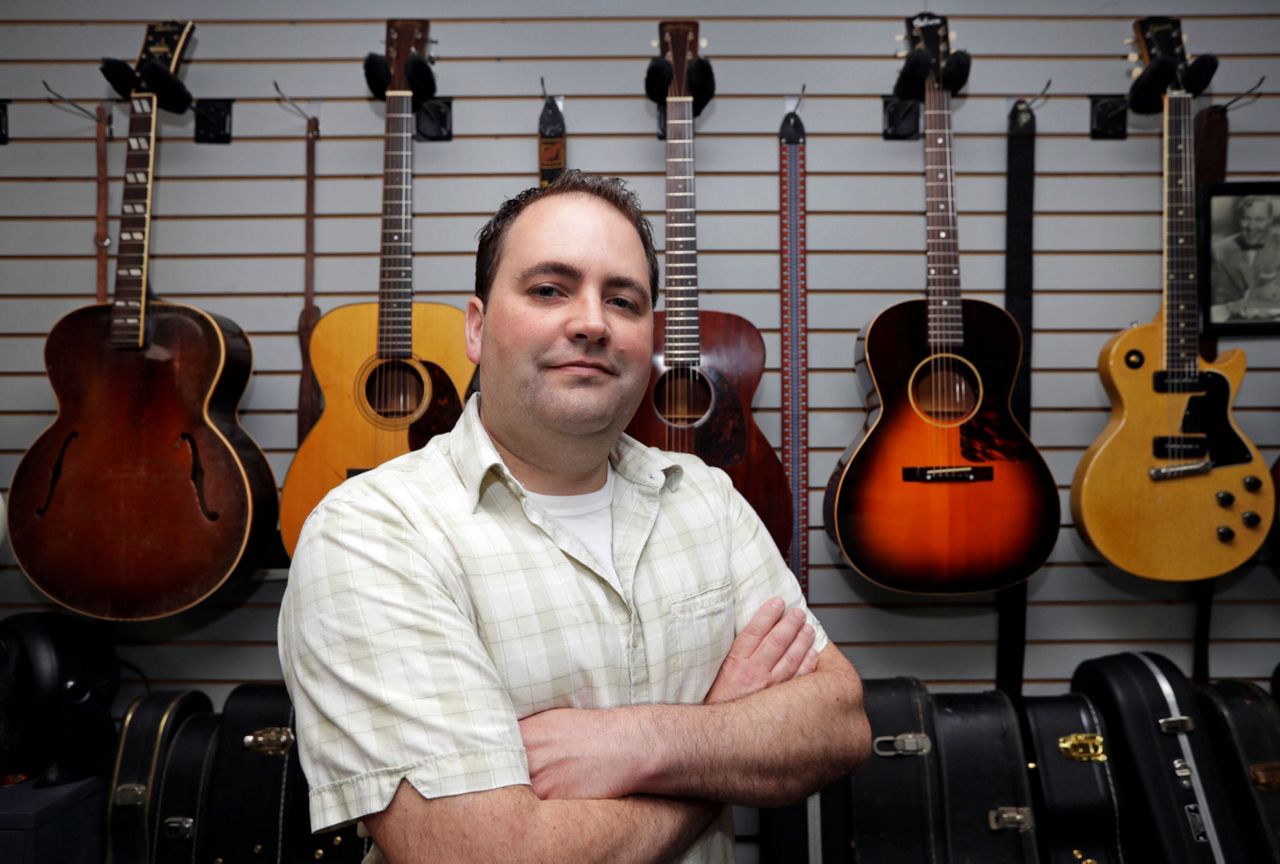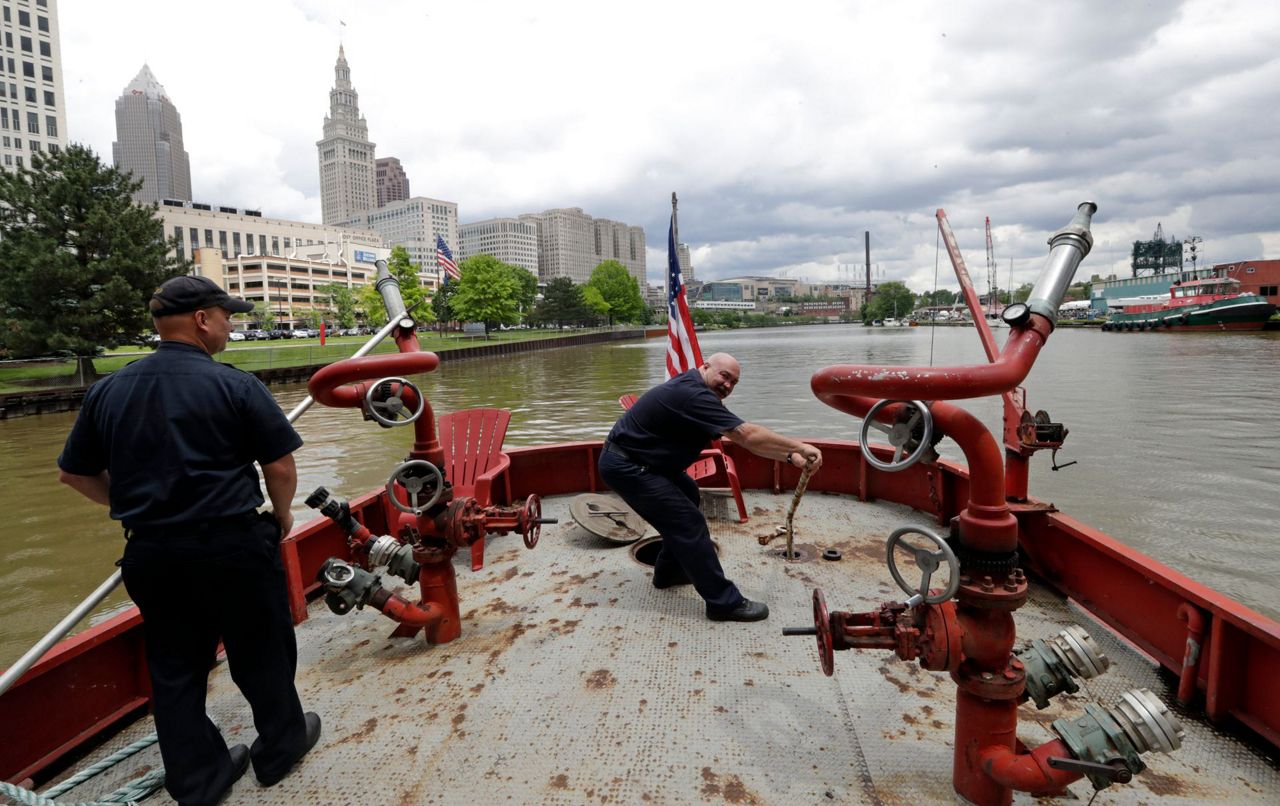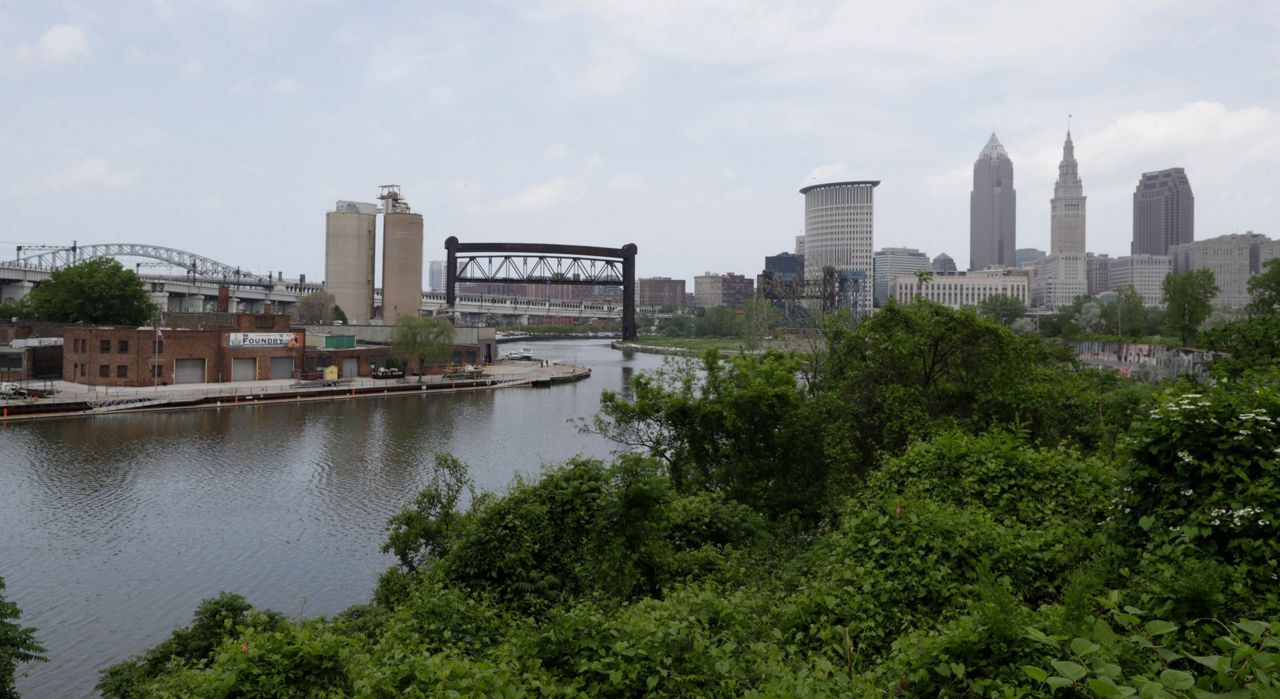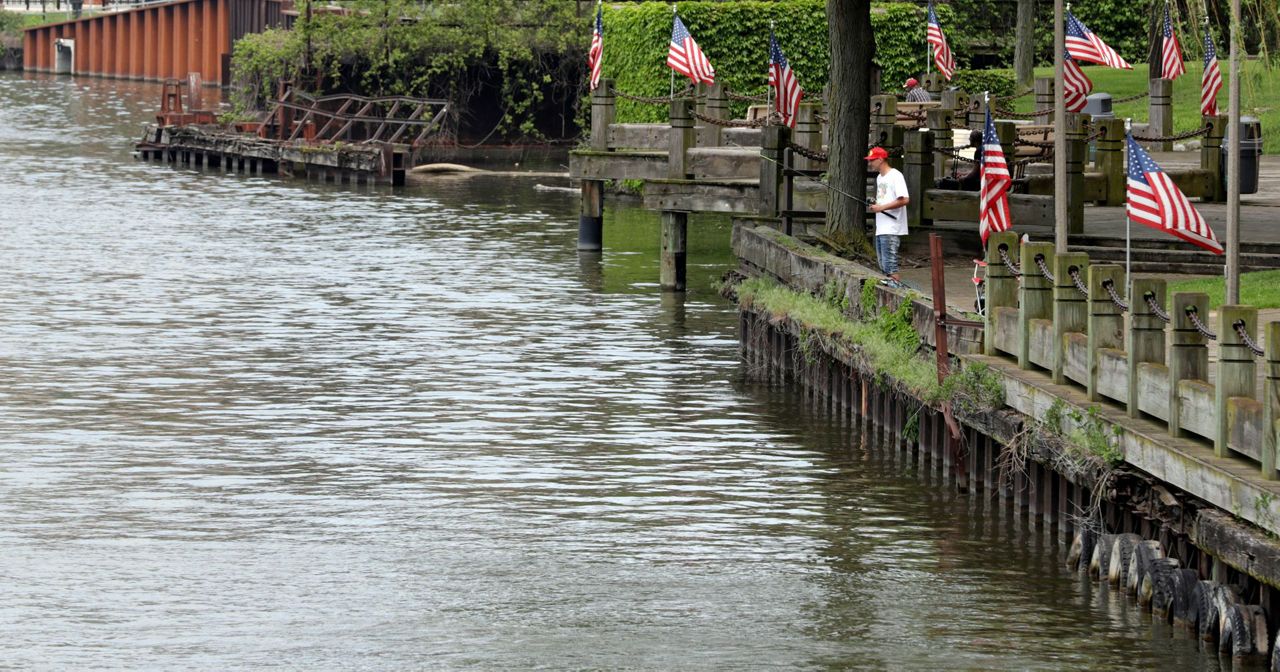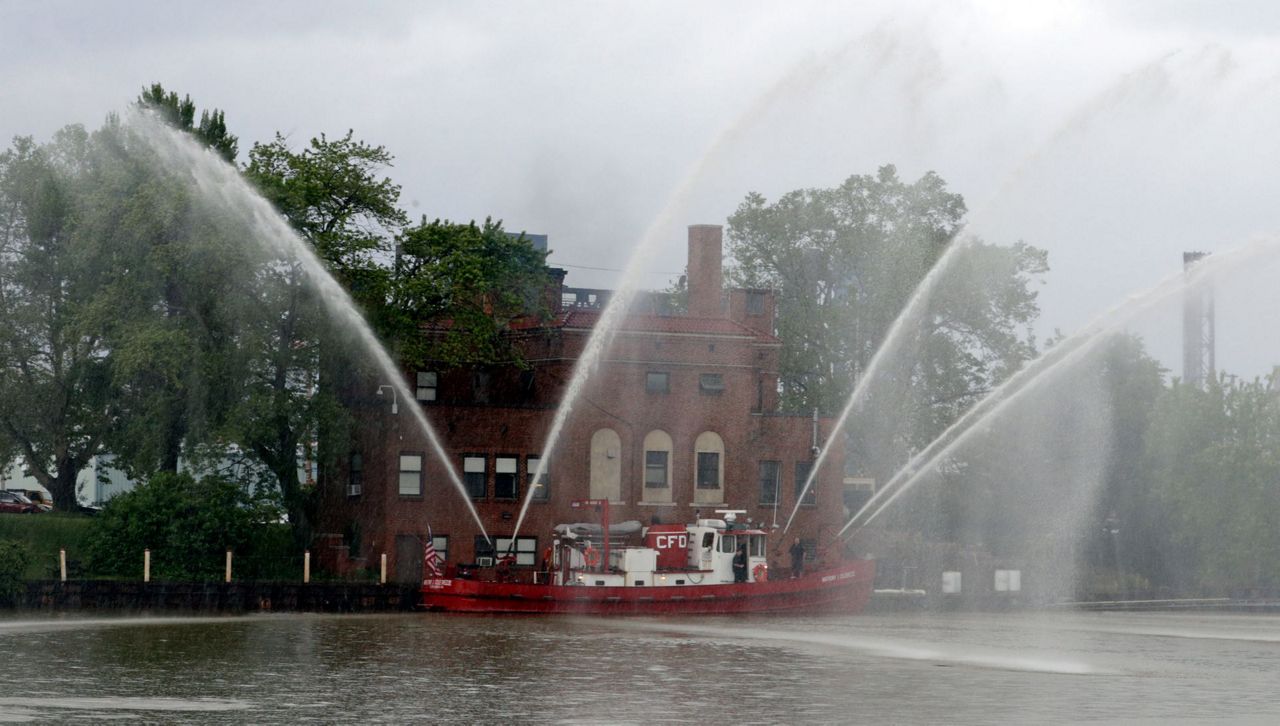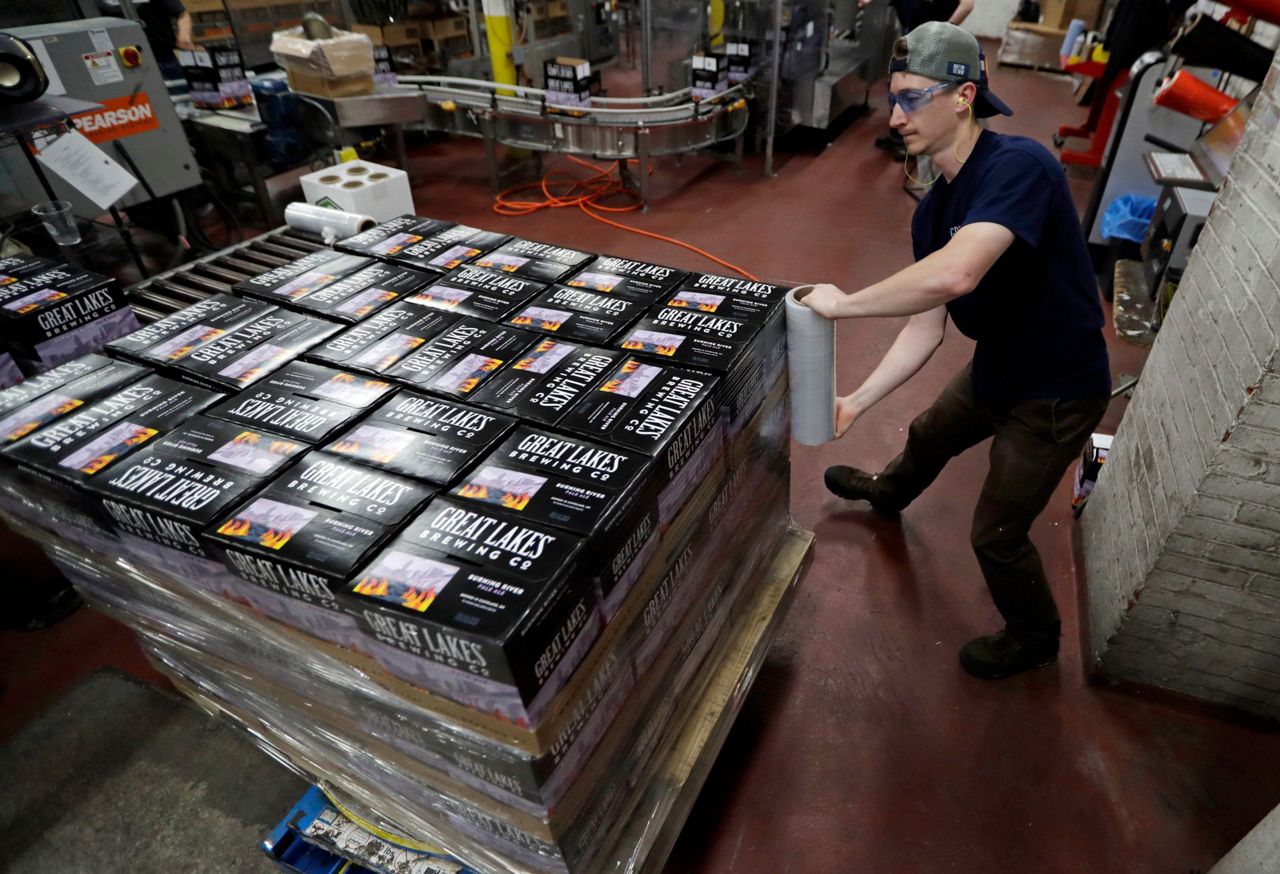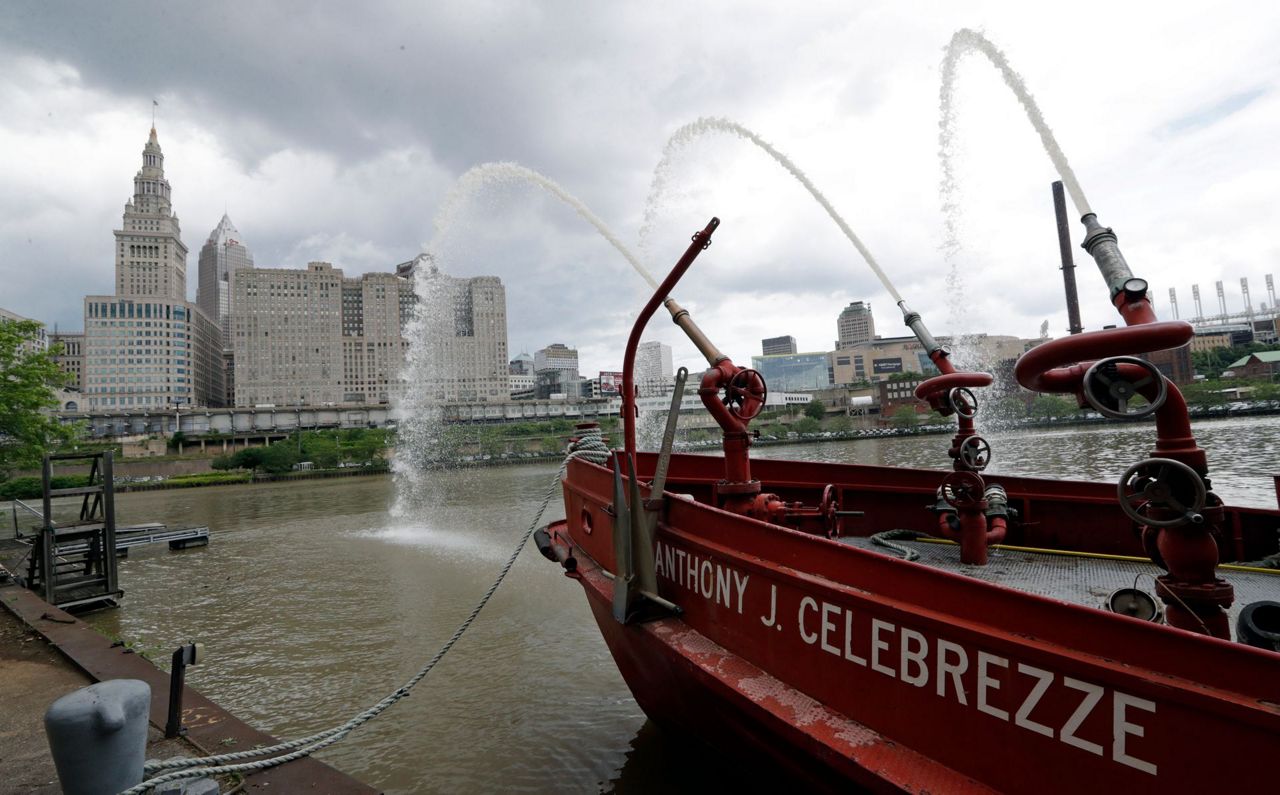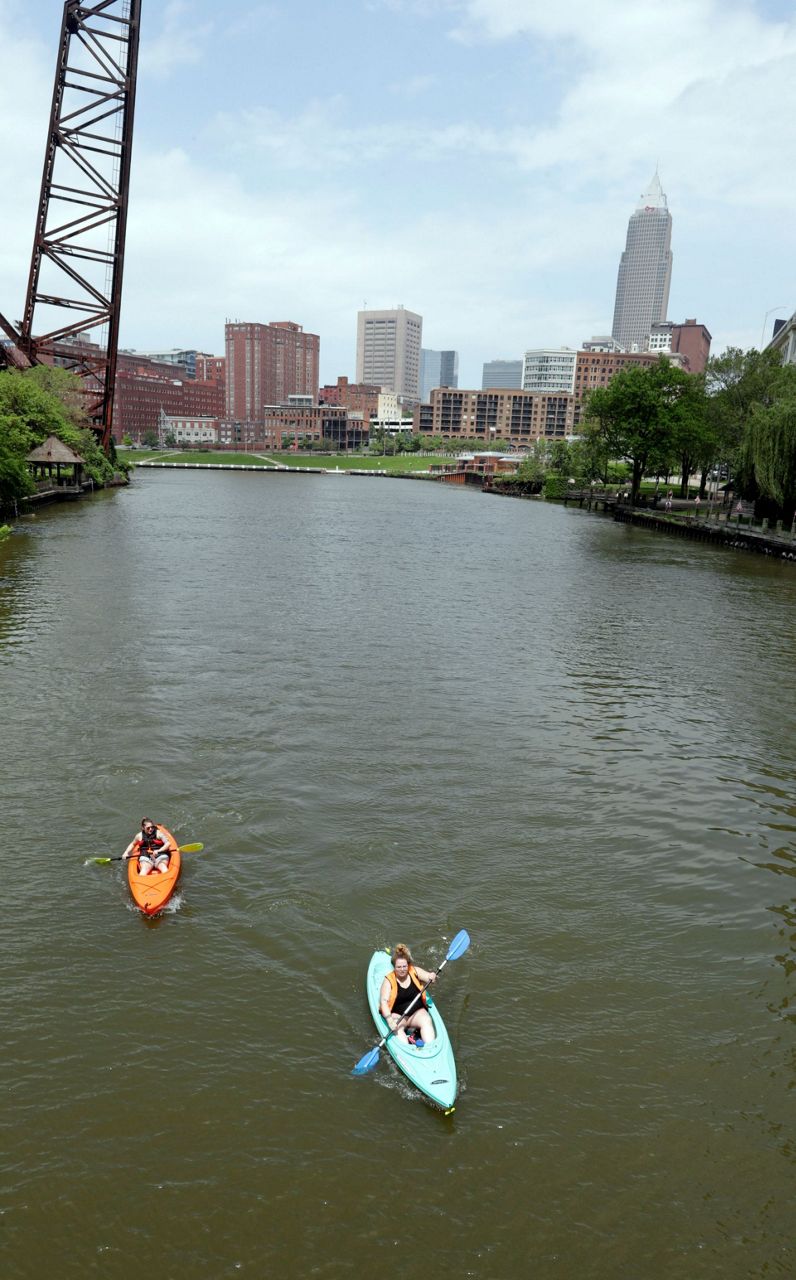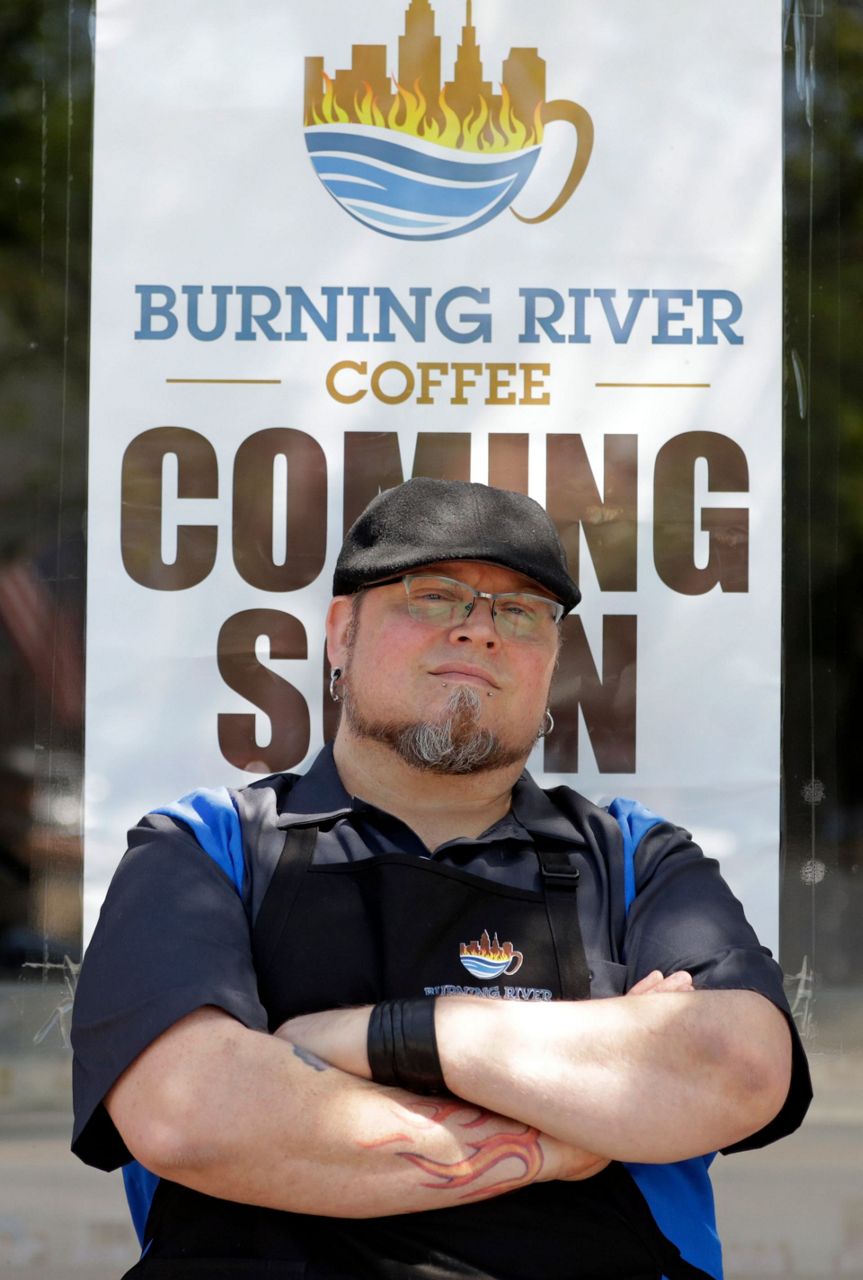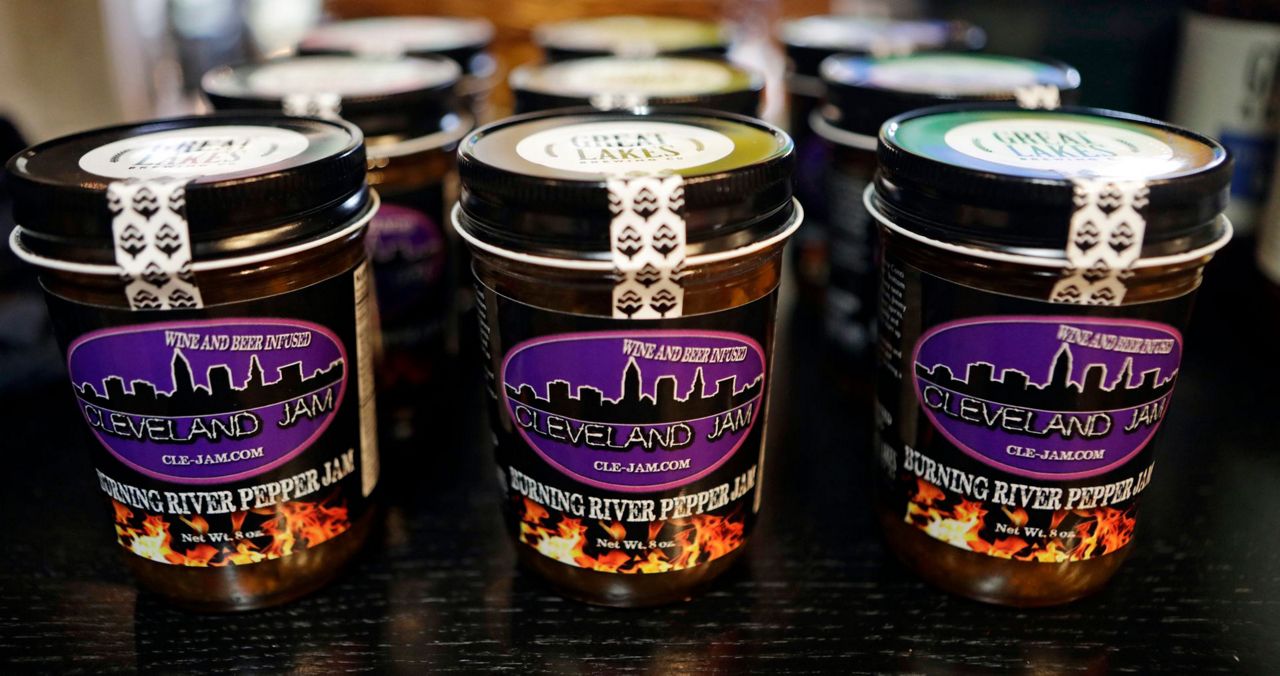CLEVELAND (AP) — Fifty years after the Cuyahoga River's most infamous fire helped spawn the U.S. Environmental Protection Agency, artists and entrepreneurs have turned old jokes into inspiration and forged decades of embarrassment into a fiery brand of Cleveland pride.
"Everybody knows Cuyahoga County for the burning river. That happened how many years ago?" said Johnny Rowan, manager of Burning River Coffee in nearby Lakewood. "It was a big joke of the country — heck, the world — for how long? And now people look at us with pride. We've taken it, we've owned it and we've turned it into something positive."
Rowan's is one of 90 active businesses registered with the state that have "burning river" in their names, the bulk formed in the past five years. The legacy of that June 22, 1969, blaze has been embraced by coffee shops, beer makers, songwriters, poets and sports teams, and adorns the names of festivals, endurance races, podcasts, candles and jams.
Despite its symbolism, the 1969 fire was hardly the first on the horrifically polluted river. More than a dozen fires broke out over the years, including a deadly 1912 blaze that killed five, and a 1952 fire that caused the modern-day equivalent of more than $12.5 million in damage.
The 1969 fire began when a spark from a train landed on an oil and garbage slick, and it lasted less than an hour. No pictures exist of the flames. But the blaze became iconic and led to the creation of the EPA and contributed to passage of the Clean Water Act and the Safe Drinking Water Act.
Somewhere over the past decade or so, the city stopped trying to erase the memory of the fire and began to embrace its many lessons, said Mayor Frank Jackson.
"You know what it is? You have to accept yourself," he said. "They view it not as the river catching fire, but the way they view it is as the beginning of something. It became the starting point."
Things got worse for Cleveland before they got better.
In 1972, Mayor Ralph Perk accidentally set his own hair on fire while using a blowtorch at a public ceremony. That same year, Randy Newman released "Burn On," singing wistfully that he'd always remember Cleveland because "the Cuyahoga River goes smoking through my dreams."
Decades of economic hardship, social turmoil and famously abysmal luck in sports followed. That losing streak ended when the Cleveland Cavaliers and LeBron James, a native of nearby Akron, brought home a national championship in 2016.
"There was a time when Clevelanders were what I call clinically depressed. No matter how much the sun was shining, there was this humdrum attitude about ourselves," Jackson said. "We've overcome that clinically depressed attitude and mentality to be a city that has an expectation of winning."
That new upbeat view began early for Cleveland-based Great Lakes Brewing Co., founded in 1988. Co-founder Patrick Conway said Burning River Pale Ale was one of the first beers the company released.
"It was self-deprecating, it was cheeky and we felt 1969 was a different time," Conway said. "We never would have chosen the name if we had thought the river was still being treated as a sewer or if we felt there was a pejorative feel about the river and the city and the name."
Great Lakes sponsors an annual Burning River Fest, too, added to anniversary events this week celebrating the city's precious clean-water resources.
"I feel that it's kind of a message of rebirth," said Jake Tuel, who chose Burning River Guitars as the name for his guitar restoration shop in Akron. "Kind of like a river coming back, an ecology coming back, business coming back."
And back in business the Cuyahoga is. In March, the EPA declared its fish safe to eat.
___
Carr Smyth reported from Columbus. Follow her at https://www.twitter.com/jcarrsmyth .
Copyright 2019 The Associated Press. All rights reserved. This material may not be published, broadcast, rewritten or redistributed.



